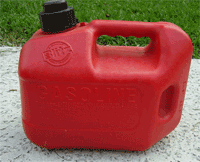Difference Between Ethanol and Gasoline
 Ethanol vs Gasoline
Ethanol vs Gasoline
There has been some debate with the usage of energy sources today, much more that everyone has become environment conscious with regard to the impact of energy on the planet. Hence, people are now thinking twice whether they’ll still use the same good old gasoline for their cars over the newly invented bio fuels and the like. In this regard, ethanol is one of those fuels pitted against gas. So how did it fair?
Gasoline has been, is still, and perhaps will still be the fuel of choice for several years or decades from now. It has become the staple food for most vehicles being used today.
However, there are many concerns posed by the usage of gasoline. One of the top concerns being raised in the use of gasoline is its emissions. Burning gas can lead to the accumulation of carbon monoxide and other green house gases that induces global warming.
Secondly, gas has long been appreciating in terms of price per gallon for over a century and it has never gone down to significantly lower levels. This phenomenon may be caused by two factors: one is that there is still an ever growing demand for gas especially that more and more gas-powered vehicles are manufactured and operated everyday. The other factor is because of its limited nature. It’s a nonrenewable form of energy. In fact, scientists regard it as one of the most inefficient energy sources known to man. Hence, because of the huge demand and small supply the result is pretty obvious ‘“ high gas prices!
On the other hand, man has been very privileged to have discovered another fuel option and that is in the form of ethanol. Otherwise known as E85, ethanol has already been incorporated in gas for quite some time. It is the fuel harnessed from corn unlike gasoline that is taken from fossils. Experts even are proud to say that ethanol is in fact soluble in water and biodegradable.
If you’re keen enough, you may have already noticed that some gas pumps are marked with certain ethanol percentages. Some are as low as 10% while others reach up to 85% especially when it is used as the primary fuel in the mixture – this is where the term E85 comes in. Using such fuel preparation is said to reduce carbon monoxide emissions from 25% to 30%.
Unfortunately, the problem with this fuel is that not too many car types can use it at present. Unless your car is a very new model designed to be compatible with ethanol, it still can’t make use of such. Moreover, many find it troublesome to hunt for gas stations that can supply their vehicles with E85. There are only a few of them anyway.
1. Ethanol comes from corn while gas comes from fossils.
2. Ethanol is a more environment friendly fuel than gasoline.
3. Ethanol is less popular and is a newer energy source as opposed to the more popular gasoline that has been the commercial winner for more or less a century.
- Difference Between Plant Protein and Animal Protein - March 7, 2024
- Difference Between Crohn’s and Colitis - March 7, 2024
- Difference Between Expression and Equation - March 7, 2024

Did you get paid by the ethanol lobby for this article? I’m looking for the difference between the two, not a promotion for ethanol.
Which burns hotter in the combustion chamber?
Which is more efficient at the same octane?
Which costs more cradle to grave?
Which causes the lifespan of catalytic converters to shorten?
Etc., etc.
Differences between the two as the name of this website proclaims.
Very True Dave! I also thought this would be gasoline vs Ethanol but it turns out that the title should be “Why he thinks ethanol is better than gas”
Ethanol is produced from sugar cane molasses which is renewable energy source where as petrol may exhaust one day.